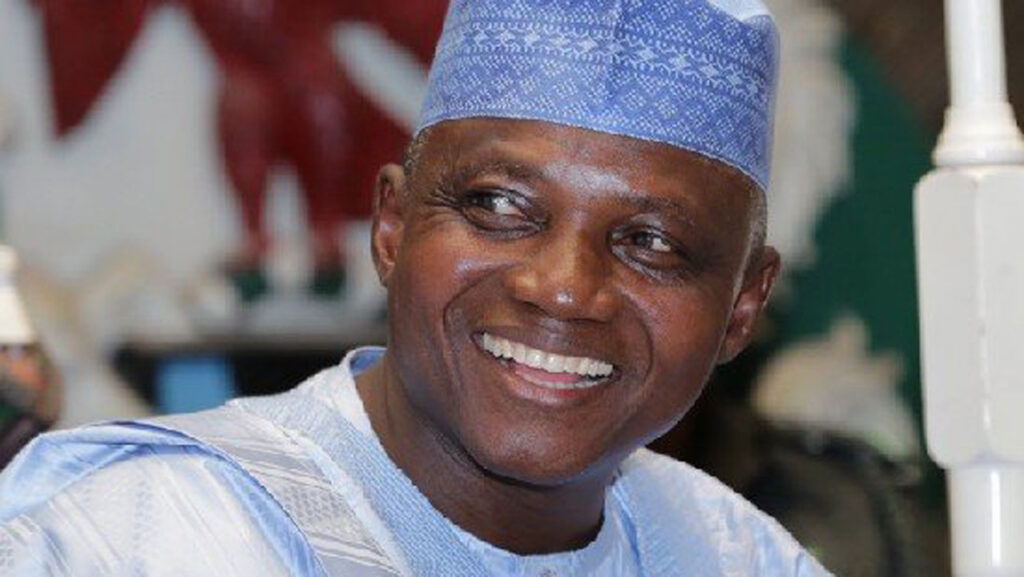By Garba Shehu

The hard hitting journalist and editor, Shaka Momodu is no fan of the Muhammadu Buhari administration, so it didn’t surprise anyone that his latest column followed the norm. The difference is that, this time, his commentary was mostly a spewing of invectives, jam-packed with quotes from as many famous people as he could think of, rather than a reasoned argument. But, I’ll ignore his insults and name-calling, and simply rebut his nonsensical arguments on infrastructure and trade.
Momodu’s major grief is with the forthcoming rail line from Nigeria to Niger Republic, a project that would facilitate trade between the two West African neighbours. The crux of his dissension seems to be that there is nothing to gain from new infrastructure projects – even though there is a lot of gain from those that already exist. This is not only bizarre, but it is completely contradictory to the thinking of economists all over the world.
Nigeria received global praise last year after President Buhari signed the African Continental Free Trade Agreement, AfCFTA. This agreement, which was hailed in many international news headlines, is intended to boost intra-Africa trade as a route out of poverty for millions across the continent. Critics have over the years questioned why African countries appear more keen to develop economic and trade ties with Western countries, while ignoring the opportunities that abound right here on the continent.
International travellers often complain that it is often easier to journey from an African country to a European or American one, than it is to journey from one African country to the other, even when they are neighbours. Intra-African travel is notoriously convoluted and tortuous. Would Momodu have felt pressed to unleash his bile if the new rail line had been between Nigeria and somewhere in Europe? I doubt it. But, he made it clear that he sees no benefit for Nigeria to invest in new infrastructure projects between fellow African countries – even one of Nigeria’s neighbours – unless they are repairs to cross-border infrastructure that already exists. How unfortunate that an African can be so contemptuous of his fellow Africans.
President Buhari obviously understands the huge possibilities that can open up to Nigeria through smoother connections with her neighbours, and The Brookings Institute captures this perspective clearly: “AfCFTA will be a game changer for stimulating intra-African trade. It is projected, through the sole removal of tariffs on goods, to increase the value of intra-African trade by between 15 percent (or $50 billion) and 25 percent (or $70 billion), depending on liberalization efforts, in 2040, compared to a situation with no AfCFTA in place. Alternatively, the share of intra-African trade would increase by nearly 40 percent to over 50 percent, depending on the ambition of the liberalization, between the start of the implementation of the reform (2020) and 2040”. In the case of Niger Republic, what President Buhari’s initiative will achieve is to bind our two countries closer together in trade, thereby taking greater advantage of the opportunities that AfCFTA is bringing.
Momodu himself did acknowledge the importance of the Lagos-Badagry Expressway that crosses the border with Benin Republic. “In terms of revenue,” he said, “more than 55 per cent of Nigeria’s intra West African trade passes through that border, compared to less than 5 per cent through the border with Niger Republic”. One can then imagine how much more revenue would accrue to Nigeria via the Niger Republic route once transportation becomes easier. There is major trade between Nigeria and Benin (population 12 million), but barely any trade between Nigeria and Niger (population 23 million), precisely because with the former there is large-scale infrastructure in place to facilitate it, and with the latter there is not.
In addition, I would have expected that Momodu’s senior position in the media would have afforded him knowledge of the West African Railways Master Plan, approved as far back as 2002 by the leaders of the Economic Community of West African States, ECOWAS. This document envisages a region-wide freight and passenger movement, a plan designed to assist members states in their short-, medium- and long-term investment decisions on railway development. According to that masterplan, it aims to “contribute not only to support investment decisions in railway infrastructure aimed among other objectives, at opening up the landlocked countries namely Mali, Niger and Burkina Faso, but will also play a catalytic role in attracting investments in areas such as mining and industries which have a multiplier effect in employment generation.” Constructing a rail line from Nigeria to Niger Republic is simply President Buhari complying with the terms and expectations of an agreement that Nigeria and other ECOWAS countries signed over two decades ago, long before he became Head of State.
What commentators like Momodu fail to realise is that their preconceptions often affect their ability to rationally assess any steps taken by the administration of President Buhari. They are determined to see everything the President does through the lens of ethnicity and bias, when they themselves are the ones biased by ethnicity. Just a little bit of rational thinking, sound economic analyses, and historical context, would have saved Momodu the energy of that poorly thought out rant. President Buhari has excellent reasons for the new railway line from our country to Niger Republic, and he has the long term interests of the entire Nigeria at heart.
–––Garba Shehu, Senior Special Assistant (Media and Publicity), Abuja.

